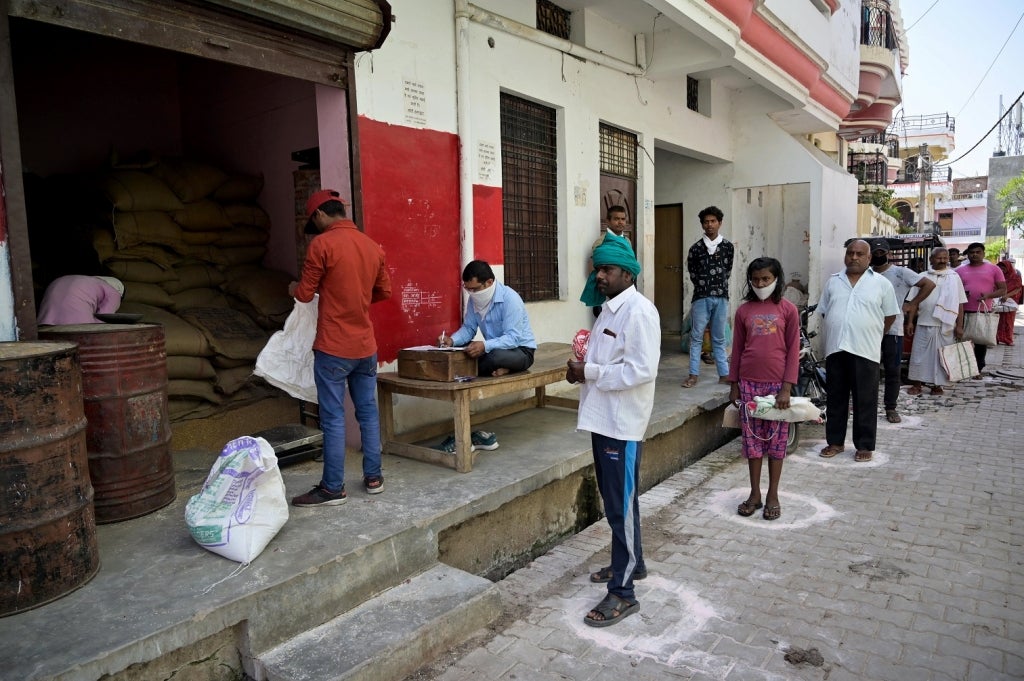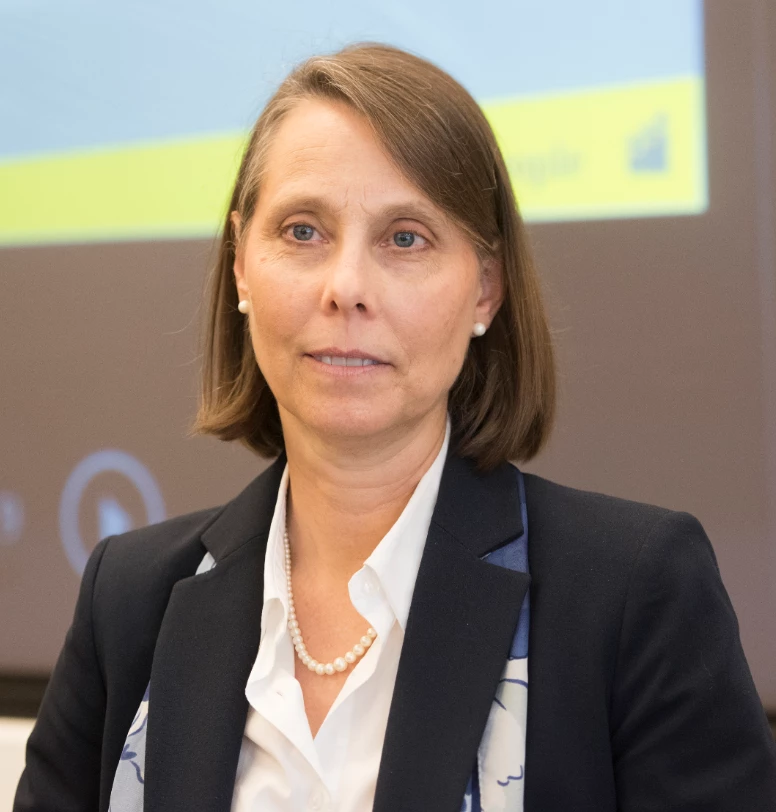 A street vendor in Dhaka, Bangladesh during COVID-19 pandemic - May, 2020. Photo - Md Shanjir Hossain / Shutterstock.com
A street vendor in Dhaka, Bangladesh during COVID-19 pandemic - May, 2020. Photo - Md Shanjir Hossain / Shutterstock.com
When India went into lockdown in late March as a result of COVID-19, one of the country’s biggest priorities was to ensure access to food. As millions risked starvation, the government mobilized its existing Public Distribution System (PDS) to give away food rations to over 800 million people, thus averting a catastrophic food crisis.
As the coronavirus spreads exponentially across South Asia, food insecurity is just one of the many challenges facing the poorest and the most vulnerable in the region. Most work in the informal sector, which does not provide any social insurance benefits. Many do not have any savings to tap into during rough times.
Missing even one day of work can lead to extreme coping strategies like skipping meals, cutting down on medical care, or selling assets. Too often, poor people face a stark choice: preserving their health or saving their livelihoods.
Missing even one day of work can lead to extreme coping strategies like skipping meals, cutting down on medical care, or selling assets.

As South Asian countries intensify the fight against COVID-19, it is imperative that social protection programs, including cash transfers, food vouchers, unemployment benefits, pensions, wage subsidies, be at the forefront of the relief and recovery efforts.
In this scenario, two lessons stand out: First, investing in protection systems helps respond rapidly to crises. Second, assisting people in building resilience against future shocks is essential for a strong recovery.
Building on systems to deploy support rapidly
In the past few months, all South Asian governments have provided relief packages but encountered fiscal and administrative challenges to reach all vulnerable population quickly.
The success of the relief packages has been typically determined by the strength of existing social protection systems. Governments that had invested in social protection delivery systems, such as a central registry of beneficiaries or a dedicated payment platform, were able to respond rapidly and efficiently.

India, in addition to scaling up food benefits, used programs like the Rural Employment Guarantee Scheme and PM Kisan, to provide additional cash transfers to existing beneficiaries. State governments used the centrally developed national identification system and social protection delivery platform to identify and reach affected households. Also, in a landmark move, India extended its food ration benefits and made them universal and portable, enabling stranded migrants to avail of them from anywhere in the country. The government has also expanded the provision of public works through the Pradhan Mantri Garib Rozgar Yojana to ensure that migrants returning to their villages have access to jobs and wages.
The Pakistani government used the National Socio-Economic Registry – which includes about 80 percent of the population – to identify beneficiaries. For those not registered, enrolment and verification were implemented within a week of the announcement of the program through a biometric based payment system linked to the National ID Registry. In addition to the current 4.5 million recipients of the Benazir Income Support Program, the program was scaled up to reach 7.5 million households. The integrated system will altogether allow the government to reach at least 12 million families. Sri Lanka followed the same path, using its Samurdhi cash transfer program to provide relief to households. In both cases, either direct cash or postal services were utilized to maintain social distancing.
Smaller countries like Maldives and Bhutan capitalized on high internet or cell phone penetration rates to reach potential beneficiaries to facilitate registration and enrolment.
While India and Pakistan – with significant advances in biometric identification, financial inclusion, and mobile phone penetration - responded within weeks after the lockdowns started, Afghanistan faced challenges due to the absence of both technology and institutions.
In both Pakistan and Sri Lanka, either direct cash or postal services were utilized to maintain social distancing.

Support for social protection and jobs essential to boost recovery
As households benefit from social protection programs and increase their earnings, their demand for goods and services goes up, thereby promoting greater employment in small and large firms.
But businesses also need to access liquidities to meet their payroll or other operational costs. Governments can support them through wage subsidies, deferrals or subsidies on utility or tax payments, or job creation.
For example, Nepal is using an existing program to provide jobs to those who have lost their livelihoods due to COVID-19. Similarly, Bangladesh is focusing on boosting the productivity of urban youth.
In Sri Lanka and Bangladesh, governments are providing support to private sector businesses to cover the wage payments of their employees.
In Maldives and Pakistan, the government has provided relief on payment of utility bills either by deferring payments or through subsidies.
As we look at the long-term response to the pandemic, we need to build the resilience of poor households against current and future shocks - by providing them with the resources they need to fend for themselves and care for their children. In that effort, we also need to support employment programs that will pave the way for more opportunities for them to create a stronger future.
Share this on Twitter:




Join the Conversation